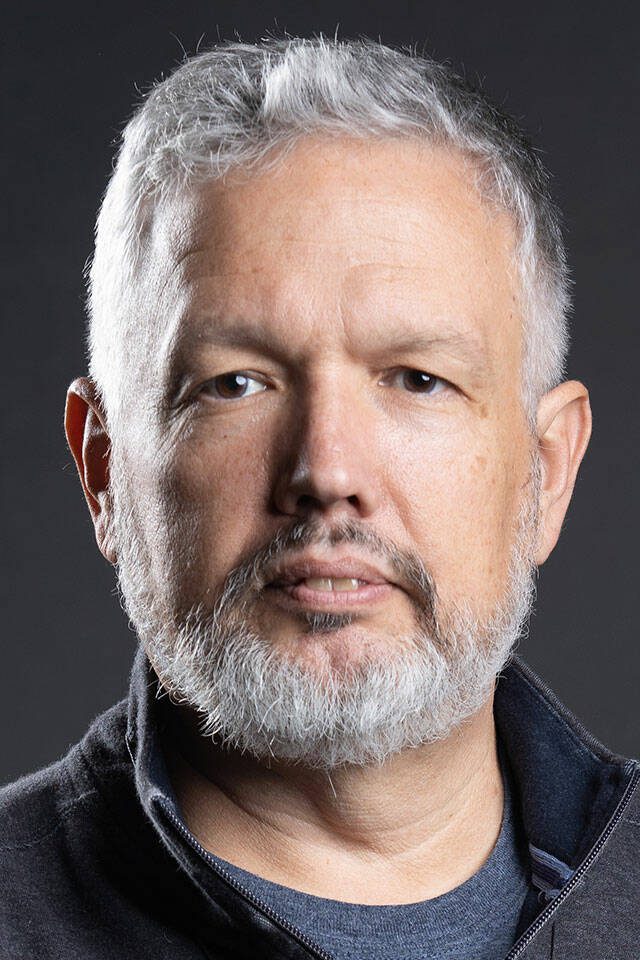By Dan Hazen / Herald Forum
I’m intrigued by science. Of course, I didn’t recognize it as “science” when I was a child, I just wanted to know how things worked and what they were made of.
I learned that one of the differences between being “intrigued by science” and being a scientist was a love for details (something I don’t really possess). The pursuit of details moves science forward. The drive to dig deeper into cause and effect, to free the origin of a thing from the wrapper of its outcomes. To get granular. There’s something profound about understanding the mechanism of a thing, the way it works right down to the gears and cogs. When you know how to strip a car engine down to its component parts, in a sense you own the idea of “car engine.” It’s yours. Possessing this kind of knowledge is empowering. And intoxicating.
This intoxication lures us into adopting this way of knowing (epistemology) for everything, not just science, and it’s tearing us apart. Don’t get me wrong, it’s not the fault of “science” — I wish we’d lean into scientific thinking with a little more rigor, actually — it’s that we exclusively apply it to things like our identities. We’re losing sight of everything but our personal details.
We’re at a point where, unless you have lived the precise circumstances of my life, you are at best irrelevant, more likely ignorant, and increasingly, my enemy. We’ve stripped ourselves down to the component parts and discarded notions of loyalty to anyone but ourselves. Our commitment to expressive individualism has raised the value of the self to the pinnacle of human experience. The un-intended result is factionalism, isolation, enmity and harsh judgment. We’re not a “whole” anymore. We’ve lost the ability to see an engine and we see only a pile of unrelated parts. We’ve dissected ourselves into an epidemic of loneliness. Because no one else could possibly know “my story” completely, they cannot speak to me with any authority. When each person becomes the high priest of their own personal religion, every other person on the planet becomes a heretic.
Reader, you are part of at least one people-group and you owe them for at least some of your identity. Think about it: You look at native peoples, aboriginal populations and the oppressed around the world and you rightly admire them as a group. You celebrate their culture and collective identity. You see them not as an amalgamation of individuals, but as a whole. Their identities are inexorably linked to one another. But be honest: You also look down on them a bit. Their “wholeness” comes off as a little primitive. A little provincial. Quaint. Certainly not for you.
Because of the privilege afforded by your birth in the wealthy West, you disdain the notion that you could belong to anyone but yourself. Your autonomy is absolute. You owe no one anything and you are responsible only to yourself. An opposing opinion is not a point for discussion, it is an assault on “your truth.” You have stripped your identity down to the atomic level because you can. Because you’re bored. Because you have the time and the resources to do it. And now here we sit, each of us alone behind the ramparts of a private, customized castle, defending our Kingdom of One.
In his fantasy work “The Great Divorce,” C.S. Lewis describes Hell as a dreary English town where it always rains and is always twilight. Worse, each person builds a home however they want by simply imagining it. When Hell was established, people instinctively built near each other, and the “town” grew. But in no time, the bickering and self-indulgence drove them to abandon their perfectly customized homes and strike out further to live the way they chose without interference. By the time Lewis’ main character visits Hell, it has become so expansive, so vast, and the space between people has grown to such a magnitude, that you would have to travel non-stop for hundreds of years to arrive at the home of a neighbor.
Hell’s borders are limitless. Ours are not. We are running out of room to live this far apart.
Dan Hazen is the community pastor at Allen Creek Community Church in Marysville.
Herald Forum
The Herald Forum invites community members to submit essays on topics of importance and interest to them. Essays typically are between 400 and 600 words in length, although exceptions for longer pieces can be made. To submit essays or for more information about the Herald Forum, write Herald Opinion editor Jon Bauer at jbauer@heraldnet.com or call him at 425-339-3466.
Talk to us
> Give us your news tips.
> Send us a letter to the editor.
> More Herald contact information.

























